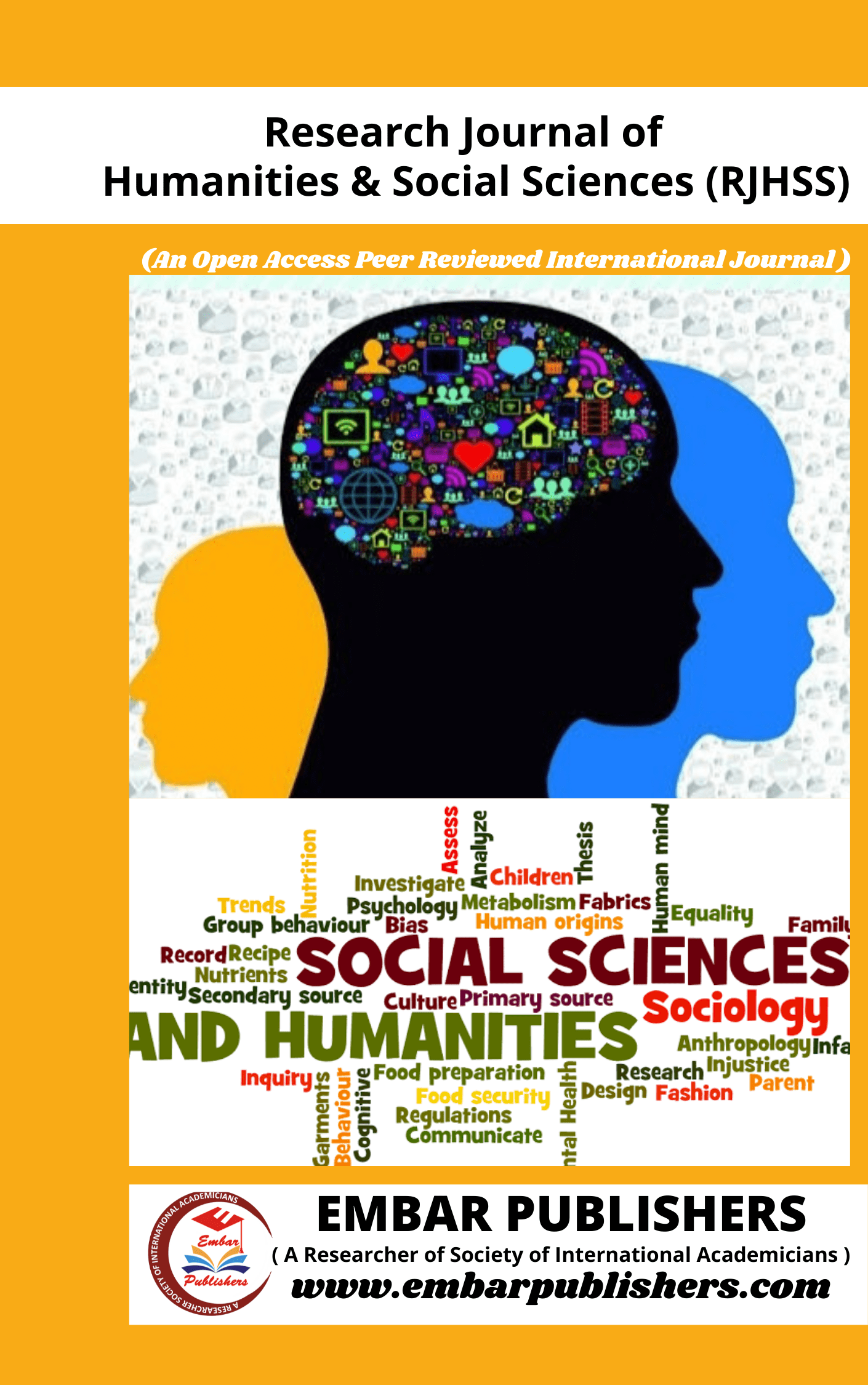
Digital Integration in School Leadership: Its Implications to School Heads’ Performance in Bislig City Division
Araceli E. Canete , Liz Irish Ng Villamor
School Principal, Mangagoy Central Elementary School, Bislig City, Philippines 1 , Graduate School, Saint Joseph Institute of Technology, Butuan City, Philippines 2
DOI: doi.org/10.58924/rjhss.v4.iss4.p16
Published Date: 25-Aug, 2025
Keywords: : Digital integration, School leadership, School performance, Technology integration in school management
Abstract:
Rapid advancements of technology and digitalization are becoming an integral part of the educational landscapes of schools across the globe. Studies about digital leadership in public schools are increasingly seen in the literature but little attention has been focused on the local scale. This study investigated the extent of integration of digital technologies in the school leadership and management of public elementary schools in Bislig City division. A descriptive correlational research design was used to appropriately collect data from all or 51 public elementary school heads in Bislig City division to investigate the correlation between digital integration to leadership and performance of school leaders. Spearman rho correlation coefficients reveal that the extent of digital leadership of the school leaders in terms of Communication, Teaching and Learning, Productivity and Professional Practice, Support, Management, and Operations, and Assessment and Evaluation positively and significantly correlates to school performance. This is evidenced by the respective correlation coefficients of 0.657, 0.552, 0.653, 0.452, and 0.467. The findings of the study provide supplemental empirical evidence to the existing body of knowledge regarding the essential role of digital integration in the current trends of digital leadership.
References:
1. Ahlquist, J. (2014). Trending now: Digital leadership education using social media and the social change model. Journal of Leadership Studies, 8(2), 57-60.
2. Antia, J. & Dioso, E. (2023). The Impact of Digital Literacy of School Heads toTheir Performance as School Leaders. EPRA International Journal of Multidisciplinary Research (IJMR) - Peer Reviewed Journal. Volume: 9| Issue: 7| July 2023|| Journal DOI: 10.36713/epra2013 || SJIF Impact Factor 2023: 8.224 || ISI Value: 1.188
3. Briones, M. R., Manaig, K. A., Bonganciso, R. T., Tesoro, J. F. B., Buama, C. A. C., Sarmiento, M. B., & Sapin, S. B. (2023). e-Work Self-Efficacy digital competence and work engagement of teachers in public secondary schools from two provinces in the Philippines. Ho Chi Minh City Open University Journal of Science-Social Sciences, 13(2), 14-36.
4. DepEd Order No. 78. S. 2010 otherwise known as the Guidelines on the Implementation of the DepEd Computerization Program (DCP)
5. Karakose, T., Polat, H., & Papadakis, S. (2021). Examining teachers’ perspectives on school principals’ digital leadership roles and technology capabilities during the COVID-19 pandemic. Sustainability, 13(23), 13448. https://doi.org/10.3390/su132313448
6. Khaw, T. Y., Teoh, A. P., Khalid, S. N. A., &Letchmunan, S. (2022). The impact of digital leadership on sustainable performance: A systematic literature review. Journal of Management Development, 41(9/10), 514-534.
7. Macatuno-Nocom, N. (2019). Digital leadership practices of select deans in Philippine state universities and colleges: Implications on the 21st century education. International Journal of Global Community, 2(1-March), 1-22.
8. Pagani, L., Argentin, G., Gui, M., & Stanca, L. (2016). The impact of digital skills on educational outcomes: evidence from performance tests. Educational studies, 42(2), 137-162.
9. Sharma V. (2021). ICT integration in the educational system of Philippines. Journal of Governance and Public Policy, 5(3), 259-282.
10. Tanucan, J.C.M., Negrido, C., & Malaga, G. (2022). Digital Leadership of School Heads and Job Satisfaction of Teachers in the Philippines during the Pandemic. International Journal of Learning, Teaching and Educational Research. Vol. 21, No. 10, pp. 1-18, October 2022. https://doi.org/10.26803/ijlter.21.10.1
11. Veguilla-Martinez, N., Corrales, A., Grace, J., & Peters, M. (2022, April). Campus leaders’ use and attitudes towards technology impacted by COVID-19. In Society for Information Technology & Teacher Education International Conference (pp. 697-701). Association for the Advancement of Computing in Education (AACE). http://www.learntechlib.org/p/220815/
12. Vucaj, I. (2022). Development and initial validation of Digital Age Teaching Scale (DATS) to assess application of ISTE Standards for Educators in K–12 education classrooms. Journal of Research on Technology in Education, 54(2), 226-248. https://doi.org/10.1080/15391523.2020.1840461
13. Zhong, L. (2017). Indicators of digital leadership in the context of K-12 education. Journal of Educational Technology Development and Exchange (JETDE), 10(1), 3

ISSN(Online): 2945-3968
Publisher: Embar Publishers
Frequency: Bi-Monthly
Chief Editor: Dr N.L.N Jayanthi
Language: English
